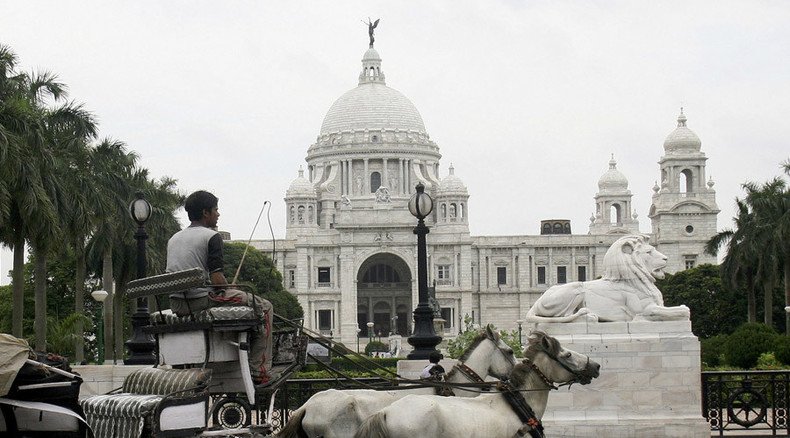‘Colonial mindset’: British ignorance hinders relations with India, study suggests

Ignorance about India among Britain’s younger generations and a lingering ‘colonial mindset’ act as a brake on proper relations between the two countries, a study claims
The ‘India Matters’ report, carried out for the British Council by polling firm Ipsos MORI, argues a lack of knowledge could hinder the huge potential for trade and cooperation between the two nations.
“India will be one of the most important nations throughout the 21st century,” it asserts.
“And while there has been a concerted effort to strengthen the UK’s bilateral relationship with India in recent years, research conducted by the British Council has found that there is a potential disconnect between Indian and British young people’s experience and knowledge of each other’s countries.”
The report says that while 74 percent of young Indians polled know “a great deal” or a “fair amount” about the UK, only 21 percent of young Britons could say the same.
Some 30 percent of Indians also think British people are “ignorant of other cultures,” while 24 percent said Brits are “intolerant” of foreigners.
READ MORE: Modi backs call for UK to pay India reparations for colonial-era damage
The negative views may be due, in part, to Britain’s track record of colonial dominion over India, the report suggests.
“In some contexts, the colonial legacy presents a barrier for the UK in forging relationships with India today and in the future,” the report argues.
This is perceived in India to be the result of a cultural hangover from the days of empire.
“Indeed, there is a growing sense of frustration in India as some feel that a colonial mindset still lingers with some people in the UK, as at times it appears that India is still not perceived or treated as an equal to the UK.”
In July, Indian/UK relations made headlines when a video showing Indian politician Shashi Tharoor lambasting Britain’s colonial record during an Oxford Union debate went viral.
In the video, Tharoor said India is entitled to financial compensation after centuries of exploitation and foreign rule.
READ MORE: Narendra Modi UK visit: Cameron urged to raise human rights with Indian PM
“Britain’s rise for 200 years was financed by its depredations in India. We paid for our own oppression. It’s a bit rich to oppress, maim, kill, torture and repress and then celebrate democracy at the end of it,” Tharoor said at the debate.
He further said Indians had “paid for [their] own oppression” by buying British goods, arguing that by the turn of the 20th century they were the biggest buyers of British products in the world.
Indian Prime Minister Narendra Modi backed Tharoor’s calls for reparations to be paid to India by the UK, telling his country’s parliament the speech “reflected the feelings of patriotic Indians on the issue and showed what impression one can leave with effective arguments by saying the right things at the right place.”
Modi will visit the UK in November. British Prime Minister David Cameron has already come under pressure from MPs including Labour leader Jeremy Corbyn and SNP MP Alex Salmond to challenge Modi on India’s human rights record.












